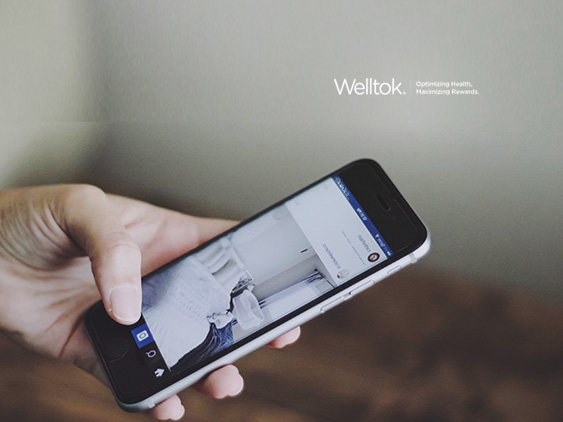New Research Reveals Most Employees Get Generic Wellbeing Support and 82% Would Increase Participation with Personalized Programs
Welltok’s Wellbeing Wake-Up Report Exposes Where Employers Are Missing the Mark and Confirms Total Wellbeing is a Top Priority
Employees across the nation have rung the alarm – fitness challenges and one-size-fits-all wellbeing programs are not what they want or need. Welltok, the leading consumer health SaaS company, released the new Wellbeing Wake-Up Report that reveals employees are seeking personalized and easy to access support for all aspects of health.
Welltok, which works with many large employers, conducted a nationwide survey of 1,000 full time employees with the independent market research firm, Ipsos, to gather primary data on their expectations for corporate wellbeing programs and ways to drive engagement. Key findings of the newly released survey include:
- Employees want total wellbeing support: People want, and expect, their employer to help them achieve personal wellbeing goals. More than 60% of employees are seeking support from their employer for all aspects of health, with financial health being their #1 priority. Employers are taking note with 67% of companies planning to expand their wellbeing initiatives over the next 3-5 years to include programs not specifically focused on physical health, according to a National Business Group on Health survey.1
- Employers are missing the mark: Despite increased investments in wellbeing programs, only 16% of employees strongly agree that they know where to find all the health and wellbeing resources available to them. Employers must address these challenges by making it easy for employees to find and use programs. Additionally, 84% say their company offers one-size-fits-all programs and 56% of employees have received irrelevant support, wasting time and money. Delivering more personalized programming would motivate over 80% of employees to participate more, along with a variety of non-cash incentives, with the number one choice by employees being more paid time off.
- Employers are failing the stress test. 64% of employees say they feel stressed at work, especially women and middle-aged workers. While not all stress is bad, long-term stress can affect an individual’s health.2 If not addressed, this could impact an employee’s job performance and likelihood to stay. Over 50% of millennials have seriously considered switching jobs due to workplace stress, and while employers are taking notice, only 33% of respondents say their employers offer stress management programs to them. This underscores the importance of effectively providing the right support to the right individual when and where it is needed, or risk greater employee burnout and turnover.
HR Technology Interview: TecHR Interview with Joe Edwards, Executive Director, Tonic3 & W3
“These findings validate what we are seeing industry-wide. Today’s employees are placing a premium on simplicity, convenience, and personalization,” said Brian Marcotte, CEO and president of the National Business Group on Health. “To meet these demands and truly move the needle on increasing the health and productivity of their workforce, we are seeing more employers move to a more holistic wellbeing platform.”
HR Technology News: SupplyShift & Ulula Connect Worker Voice to Supply Chain Visibility
“Understanding what employees across the country want is an important first step, but being able to predict which programs individual employees will be most receptive to and will drive the greatest impact is what takes corporate wellbeing programs to the next level,” said Scott Rotermund, Welltok’s co-founder and chief growth officer. “Welltok’s Total Wellbeing Solution leverages advanced analytics and machine learning to help employers across the nation improve the accessibility and relevance of programs for employees and dependents, eliminating the guesswork all around.”
HR Technology Interview: TecHR Interview with Bhaskar Roy, Head of Growth at Workato

